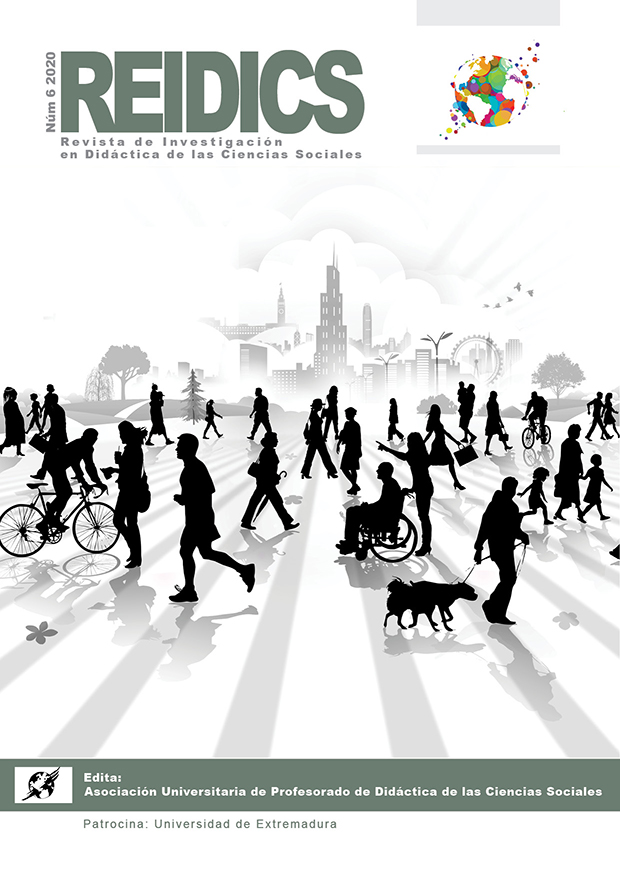Chilean teachers' conceptions of geographical consciousness
DOI:
https://doi.org/10.17398/2531-0968.06.126Keywords:
geographical consciousness, geographical thinking, teachers, didactics of geography, curriculaAbstract
Geographic consciousness is the ultimate expression of geographic thinking from a critical and projective perspective, in other words, it not only stays in criticism but it is able to generate alternatives for the solution of geographical and environmental problems. In the words of Laurín (2001, p. 199) it means having an "awareness of the geography of the present, of the relativity of places and of interpretations of inhabited places". This research arises as a result of the relevance of forming the geographical consciousness in the Social Sciences classes, and, in turn, of the scarce literature that is handled from didactics. The aim of the article is to analyze the conceptions of Chilean teachers on geographical consciousness. We will focus on the results obtained in three questionnaire questions to find out what teachers understand by geographical conscience and how it should be treated methodologially in the classroom. We complement the analysis with the answers obtained in the interviews. The research is carried out in the field of Social Sciences didactics. It is approached from the perspective of critical theory because it seeks to analyze reality to transform it (Pagès i Santisteban, 2011) and a mixed methodology with predominance of the qualitative focus is applied from a case study (Stake, 1999). Preliminary results indicate that geographic consciouness is a new concept for teachers which have not been part of their academic, disciplinary or didactic trajectories; and therefore, they do not have an adequate training to internalize it and develop it together with their students. Most teachers value the prominence of social actors and their relationship with local space as a key element for the education of geographical consciousness, although a significant group of teachers remains anchored to a more spatial vision , that is, focused on the exclusive development of spatial skills.
Downloads
Published
Issue
Section
License
Aquellos autores/as que tengan publicaciones con esta revista, aceptan los términos siguientes:
- Los autores/as conservarán sus derechos de autoría y garantizarán a la revista el derecho de primera publicación de su obra, el cual estará simultáneamente sujeto a la Licencia de reconocimiento de Creative Commons 4.0 BY-NC-SA que permite a terceros compartir la obra siempre que se indique su autor y su primera publicación en esta revista.
- Los autores/as podrán adoptar otros acuerdos de licencia no exclusiva de distribución de la versión de la obra publicada (p. ej.: depositarla en un archivo telemático institucional o publicarla en un volumen monográfico) siempre que se indique la publicación inicial en esta revista.
- Se permite y recomienda a los autores/as difundir su obra a través de Internet (p. ej.: en archivos telemáticos institucionales o en su página web) antes y durante el proceso de envío, lo cual puede producir intercambios interesantes y aumentar las citas de la obra publicada. (Véase El efecto del acceso abierto).
- Los autores y autoras han respetado la política de autoría de esta revista.




